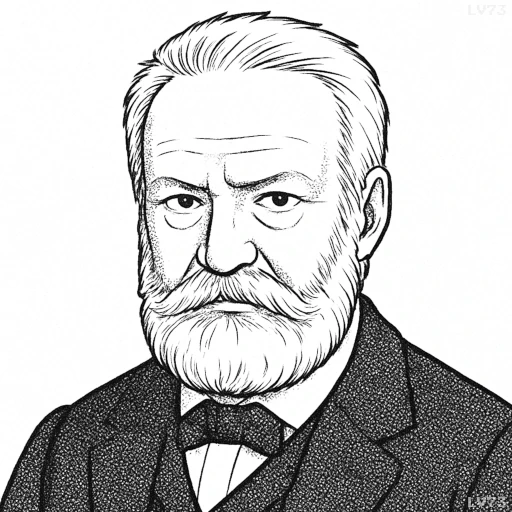“The wise man does not grow old, but ripens.”

- February 26, 1802 – May 22, 1885
- Born in France
- Author, poet, playwright
table of contents
Quote
“The wise man does not grow old, but ripens.”
Explanation
In this quote, Victor Hugo contrasts the process of growing old with the concept of ripening, suggesting that wisdom is not just a result of age but of maturation and experience. Unlike the physical process of aging, which can lead to decline, ripening implies a natural development or improvement over time, where a person’s insights and understanding deepen. Hugo’s words imply that true wisdom is not merely a function of time passing, but of continuous learning, reflection, and the integration of life’s experiences into a greater sense of clarity and purpose. A wise person grows in their ability to understand the complexities of life, without losing their vitality or becoming rigid with age.
Hugo’s concept of wisdom here connects with the Romantic ideal of the ever-evolving self, where individuals are not confined to fixed ideas or outdated ways of thinking, but instead, they mature and refine their understanding of the world. Ripening suggests a harmonious process of growth, where wisdom comes not only from experience but from reflection and adaptation.
In modern terms, this quote suggests that wisdom comes from a lifetime of learning and self-awareness, and is not necessarily tied to how many years a person has lived. It speaks to the importance of remaining open-minded and curious throughout life, allowing us to evolve and become more grounded in our understanding of the world, without being limited by age or societal expectations. It reminds us that wisdom is an active, ongoing process that is cultivated through the willingness to grow, adapt, and reflect.
Would you like to share your impressions or related stories about this quote in the comments section?


